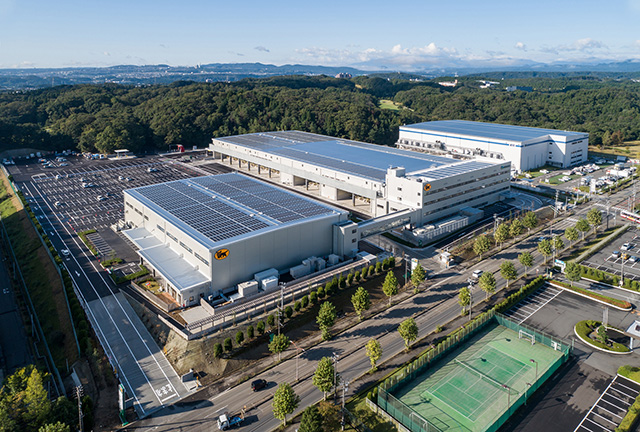While goods now flow more steadily again, the global supply chain remains deeply interconnected and, therefore, vulnerable. To be truly resilient, we must prepare for catastrophic events known as “gray swans”—events that are known and possible but unlikely to occur. These potential disruptions include weather calamities, earthquakes, pandemics and geopolitical stress—all of which demand vigilance in our readiness for supply chain surprises.
Navigating this new normal requires intrepid pioneers—mavericks who embrace emerging technologies, innovate bold solutions and galvanize change that supports the industry, our customers, the public and the planet. In this issue of GROUNDBREAKERS magazine, we profile visionary leaders who use artificial intelligence (AI), reimagine workspaces and drive sustainable innovation to make the world better in a variety of ways.
Their efforts, and those of many others across the globe, have ushered in a new era of fortitude and greater stability. We are confident that whatever may loom on the horizon—be it a gray or black swan—we are better prepared than ever to navigate it.
For a deeper dive into the increasingly complex logistics landscape, and the luminaries transforming it, we sat down with Prologis co-founder and CEO Hamid Moghadam, the 40-year industry veteran with an uncanny ability to see around corners—as evidenced by the decision to exit retail holdings in late ’90s, international expansion in the early 2000s, strategic mergers and acquisitions, and an early call to strengthen the logistics landscape coming out of the global financial crisis. Moghadam and his team have built the premier portfolio of industrial properties amounting to 1.2 billion square feet in 19 countries, serving about 6,700 customers. This gives Moghadam a unique vantage point from the epicenter of the supply chain, with 2.8% of the world’s GDP passing through Prologis warehouses annually.
In this interview, Moghadam shares his view of modern leadership, inclusive and innovative corporate culture, and how to thrive in this new era that demands resilience.
Q: What are the biggest challenges facing the logistics real estate industry today?
A: No question, it is the death of supply, particularly in the largest consumption centers. The amount of developed land within 20 miles of major U.S. city centers grew by more than 30% during the past 20 years as cities increasingly built outward. At the same time, regulatory barriers to new industrial buildings have increased, lengthening construction timelines, raising costs and limiting the amount of new development brought online each year.
Q: What are some positive trends you’re seeing these days?
A: The pandemic accelerated e-commerce, and that trend continues. Consumer expectations for delivery continue to decrease as the ability to consistently deliver goods in one day or less produces a competitive advantage. Investments in larger, decentralized distribution networks facilitate fast delivery and reduce transportation costs. While supply chains are past the pandemic bullwhip and normal seasonality is taking hold, more growth is needed to reach just-in-case inventory levels. We’re also seeing evidence of nearshoring through diversified sourcing and increased redundancy, especially with products like electronics and auto parts.
Q: What will it take to get the supply chain to net zero?
A: Supply chain leaders must not only set internal sustainability and decarbonization objectives, including net-zero goals, but encourage their customers' efforts as well. We need to work to integrate a variety of climate-friendly solutions into the value chain, including renewable energy, smart buildings, sustainable construction (such as green concrete, steel and cross-laminated timber) and electric vehicle charging infrastructure. Together, we need to work toward a low-carbon economy. Otherwise, we’re not going to be able to mitigate climate change. Collaboration requires companies with the scale and the capability to lead. In this issue of GROUNDBREAKERS, you can read about Laura Renger at the California Electric Transportation Coalition, who is focused on connecting major utilities, car makers, regulators and community leaders seated around one table.


